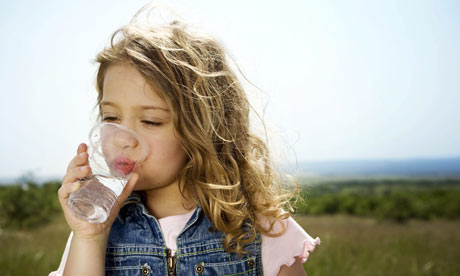
Water, the most essential part of our lives, can also be very dangerous if contaminated. Poor hygiene conditionsre the main cause of these diseases. Young children are the main victims of these diseases. As rightly said, “Prevention is better than cure.” We all should observe these effortless safety measures to reduce the effect of these diseases. Some of the precautionary measures are:
1. Make sure that the water that you are drinking is from a safe source.
2. Regular cleaning of overhead tanks should be done.
3. Storage vessels of water should be cleaned everyday and they should always be kept covered.
4. Wash hands with soap and clean water before and after eating food and also after using the washrooms.
To make water safe for drinking the following measured could be taken :
1. Clorination of water: In 15-20 ltrs of water, put 1 tablet of chlorine and leave the water for 20-30 minutes.
2. Boiling of water: If the water is boiled for 20-25 minutes, germs will be destroyed.
3. Filtration of water: Ceramic candle filters, UV systems, RO systems, etc also help in providing safe drinking water.
Read on to know the main water borne diseases among children and ways to prevent them.
Diarrhea
This disease can lead to dehydration of the body which can be fatal for infants and young children. To prevent this condition, always maintain cleanliness in the kitchen. If the water in your surroundings is clean, it is difficult to contract diarrhea. Keeping clean surroundings can help mitigate the chances of contracting diarrhea. Also make sure that the toys are washed regularly with clean and safe drinking water. During diarrhea the intake of fluids should be increased to avoid dehydration. Infants and children should also be given oral dehydration solutions to maintain the sugar and salt levels in the body. Milk should be avoided during this condition. Milk could be replaced by yogurt as it has less lactose than milk. Caffeine and oily food should be avoided. When signs of improvement are shown, soft and bland food can be included in the diet. Suggestive diet includes bananas, plain rice, boiled potato and baked chicken without fat. If the condition does not improves within a day or two, consult a doctor for advice. Treating diarrhea can be costly, if things are not taken care of at the initial stages. One should consult a doctor and go for regular check ups.
Typhoid
Typhoid is most prevalent in areas where basic sanitary conditions are not maintained. Measures to be kept in mind to avoid typhoid fever are to make sure that the water that you are drinking is from a safe source, vegetables and fruits should be peeled and washes thoroughly and the food should be well cooked. If you are to traveling to any part of the world where you might be more vulnerable to this disease, make sure that you are vaccinated for typhoid fever. But vaccination is not a fool proof preventive measure for this disease, so make sure that the basic hygienic factors are not compromised. Treating typhoid can be quite costly if adequate steps are not taken right in the beginning. One should avoid smoking and/or drinking and should lead a sedentary lifestyle if one contracts the disease. Care should be taken not to leave the treatment mid way as the treatment becomes more tough then.
Hepatitis
The most common form of hepatitis in children is hepatitis A. The main cause of this disease is contaminated food and water and it can take major proportions if not treated at the right time. The best way of lowering the risk of getting infected by this disease is by washing hands regularly, especially after using the toilet. Vaccines are also readily available as a safeguard from hepatitis A. These vaccines are quite affordable. If you are traveling to a country where exposure to this disease is high. In such circumstances, getting vaccinated is the best option.
Worms
Due to poor sanitary conditions and consumption of contaminated water worms get inside the body of our young ones. The body can have serious side effects when infested by worms. Worms inside the body affect the general functioning of the body. Observing the best sanitary conditions is the best way to prevent worms from getting inside the body. Clothes should be washed with clean water and should be dried out immediately in the sun. Make sure that your children have trimmed nails as long nails are a hub for worms. De-worming is also medically proven to prevent this illness. As per medical experts, de-worming could be done once in six months. It does not have any side effect on infants and children.
Giardia
This disease can be avoided by practicing good sanitary and hygiene conditions. Children should be made habitual of washing hands with soap and water after coming back home from school and parks. If you have diaper-aged children, make sure that you wash your hands thoroughly after every diaper change. Educate your child about not drinking water from any shallow pools, ponds, etc while playing. While traveling in countries with lower sanitation situations and untreated water, keep away from uncooked food and go safe with packaged drinking water.
All the above prevention techniques are simple and do not require any major investment. If we inculcate these habits in our daily lifestyle, we can save ourselves and our children from many fatal diseases.




